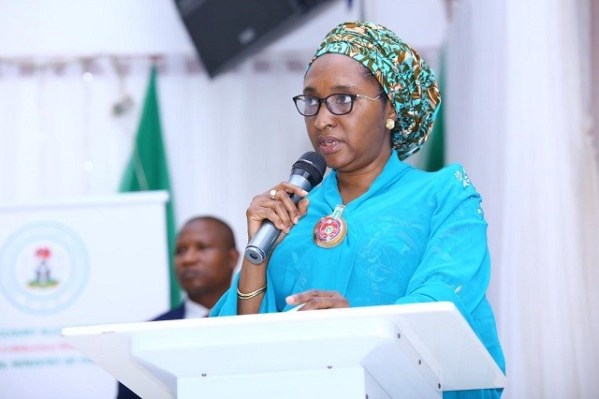The Federal Executive Council (FEC) presided over by President Muhammadu Buhari on Wednesday approved N2.3 trillion stimulus package to support the Ni
The Federal Executive Council (FEC) presided over by President Muhammadu Buhari on Wednesday approved N2.3 trillion stimulus package to support the Nigerian economy in the face of the disruptions and challenges of the COVID-19 pandemic.
The Minister of Finance, Budget and National Planning, Mrs Zainab Ahmed, who disclosed this said the package was part of the Nigeria Economic Sustainability Plan (NESP) as recommended by the Vice President Yemi Osinbajos led committee. According to her, the goals of the NESP is to create jobs, put money into the economy, as well as stop the economy from slipping into recession, support small businesses and prioritize local content (Made-in-Nigeria).
The Minister revealed that the NESP was a 12-month ‘Transit’ Plan between the Economic Recovery and Growth Plan (ERGP) and the ERGP-successor-plan currently being worked upon.
“The total package that we presented today is in the sum of N2.3 trillion, N500 billion of this is a stimulus package that is already provided for in the amended 2020 Appropriations Act. These are funds that we have sourced from special accounts.
“We also have N1.2 trillion of this fund to be sourced as structured low cost loans which are interventionary from the Central Bank of Nigeria as well as other development partners and institutions. We have N344 billion that will be sourced from bilateral and external sources and also additional funds that we can source locally. There is a strategy that has been adopted and this whole plan is to enable us respond to the triple problem of low exchange rate, youth unemployment as well as negative growth which is facing us now.
“The plan has to also support small businesses that have suffered severe impact of COVID-19 as a result of lock down. Specially, the hotel (hospitality) industry, private schools, restaurants as well as the transport sector have been very well impacted by this. We have also seen a significant impact on the poor and the vulnerable and even people that were okay as small traders, have been hard hit by standstill that we witnessed as a result of lockdowns,’’ she said.
She stated that the Council endorsed the adoption of direct labour intervention process in the execution of agricultural, housing and road construction projects to create jobs, using labour intensive methods. She said: “Council was able to take our reports and the interventions in the plan is that we prevent businesses from collapsing and also to infuse liquidity around the Nigerian economy, to create jobs using labour intensive methods such as agriculture, facility management, housing, construction, direct labour interventions that will create a lot of jobs very quickly.
The minister said the Osinbajo committee also proposed in the plan the need to undertake growth enhancing jobs, creating infrastructure investments in roads, bridges, solar power, communications technology and several others.
“We have promoted in the plan manufacturing and local production at all levels, we are advocating for the use of made in Nigeria in all of these public works that we will be doing as a way of cresting jobs opportunities to enhance jobs sufficiency.
“So, we expect for road construction for instance, we expect the minister of works not buy bitumen but to consider the use of gemstones and cement or other materials that can be used here, that way we converse our resources and will also be able to ignite other sectors within the economy,’’ she added.
